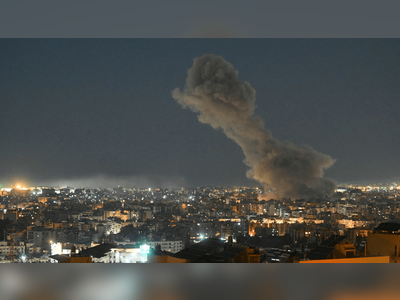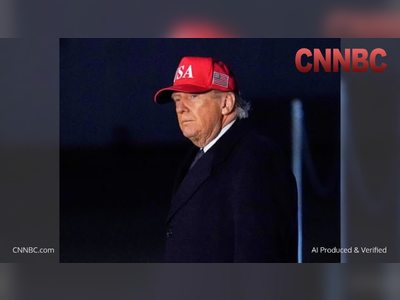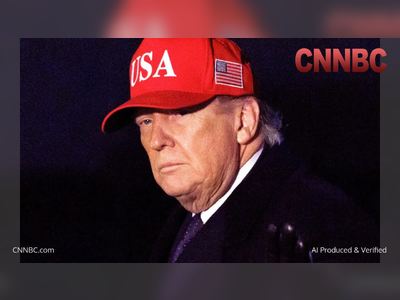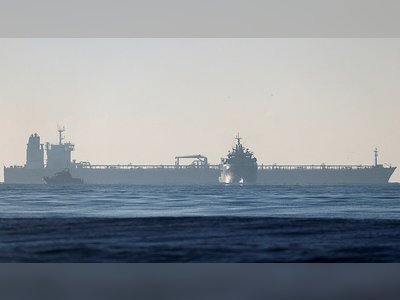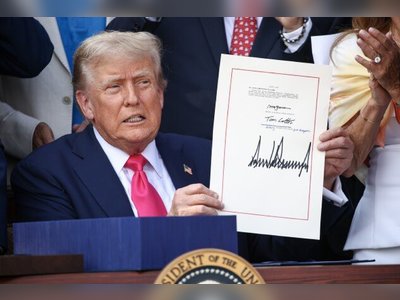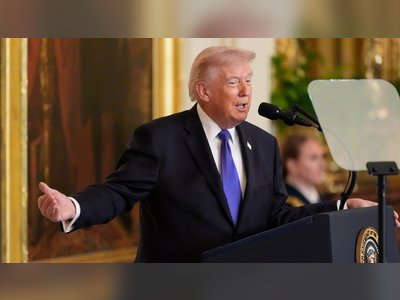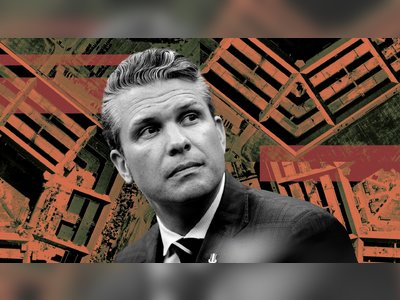As Gas Flows Halt, Europe's Energy Divorce from Russia Reaches Historic Crescendo
End of Ukraine transit illuminates geopolitical shifts and economic challenges in EU's energy landscape
In a striking development marking the end of an era, Russian gas flows to Europe via Ukraine ceased as of the early hours of New Year’s Day.
The culmination of Ukraine's decision not to renew a decades-long transit agreement has been hailed by Ukraine’s President Volodymyr Zelenskyy as a monumental defeat for Moscow.
This move underscores a significant pivot in Europe's energy sourcing strategies, potentially redrawing the continent's political and economic dynamics.
The cessation of this historic gas route, active since Soviet times and defiant of a full-scale conflict between Ukraine and Russia, signifies both triumphs and tribulations.
It is a critical juncture in Europe’s ongoing efforts to curtail its dependency on Russian energy—a dependency that at one time saw over 130 billion cubic metres of gas traverse Ukrainian territory annually.
The geopolitical undercurrents of this cessation are multifaceted.
While Ukraine celebrates a perceived victory against Russian influence, European Union leaders face the delicate task of managing energy security intricacies, particularly in Russia-aligned nations such as Hungary and Slovakia.
For these countries, the termination of gas transit through Ukraine poses substantial economic implications, not least for Slovakia, which projects an additional €150 million burden due to rising fees.
Yet, for others across the continent, notably in Poland and parts of Western Europe, there exists an air of strategic victory.
The move is widely regarded as another leap forward in severing the long-criticized reliance on Russian gas, a resource often weaponized in geopolitical disputes, as articulated by a recent Center for European Policy Analysis report.
This maneuver highlights the increasingly intertwined nature of energy strategy and geopolitics, as illustrated by the immediate energy shortages faced in Moldova’s breakaway region of Transnistria.
The gas cut-off has already resulted in power shortages, deeply affecting households in a region already under significant political strain.
Russia’s Gazprom, adhering to the now-expired accord, halted gas supplies via Ukraine promptly, transitioning the European energy landscape further towards diversification.
Despite the ongoing conflict and previous transit revenue losses, Ukraine stands firm in eschewing any arrangement perceived to feed into Russian coffers.
As the geopolitical chessboard shifts, senior officials in the EU must now grapple with new energy dependencies and explore long-term solutions.
The TurkStream pipeline remains the solitary Russian-European gas link, passing through the Black Sea before reaching Serbia and Hungary.
Nevertheless, its capacity falls far short of erasing the logistical void left by the defunct Ukrainian corridor.
In Moldova, government authorities pledge to explore alternative energy sources, ensuring that the broader region's energy security remains steadfast despite Russian machinations.
Such measures are pivotal, given Moscow's recent threats hinging on unpaid debts, which critics deride as economic coercion.
This strategic reorientation of Europe’s energy policy demands robust discourse amongst EU leaders.
It also reflects a shared understanding of the intricate web of energy, economy, and national security, emphasizing the complex calculus ahead for the 27-nation bloc.
As nations navigate these terrains, the cease in Russian gas via Ukraine represents not just an epochal energy shift, but a broader realignment of geopolitical alliances in a post-Soviet Europe.
The culmination of Ukraine's decision not to renew a decades-long transit agreement has been hailed by Ukraine’s President Volodymyr Zelenskyy as a monumental defeat for Moscow.
This move underscores a significant pivot in Europe's energy sourcing strategies, potentially redrawing the continent's political and economic dynamics.
The cessation of this historic gas route, active since Soviet times and defiant of a full-scale conflict between Ukraine and Russia, signifies both triumphs and tribulations.
It is a critical juncture in Europe’s ongoing efforts to curtail its dependency on Russian energy—a dependency that at one time saw over 130 billion cubic metres of gas traverse Ukrainian territory annually.
The geopolitical undercurrents of this cessation are multifaceted.
While Ukraine celebrates a perceived victory against Russian influence, European Union leaders face the delicate task of managing energy security intricacies, particularly in Russia-aligned nations such as Hungary and Slovakia.
For these countries, the termination of gas transit through Ukraine poses substantial economic implications, not least for Slovakia, which projects an additional €150 million burden due to rising fees.
Yet, for others across the continent, notably in Poland and parts of Western Europe, there exists an air of strategic victory.
The move is widely regarded as another leap forward in severing the long-criticized reliance on Russian gas, a resource often weaponized in geopolitical disputes, as articulated by a recent Center for European Policy Analysis report.
This maneuver highlights the increasingly intertwined nature of energy strategy and geopolitics, as illustrated by the immediate energy shortages faced in Moldova’s breakaway region of Transnistria.
The gas cut-off has already resulted in power shortages, deeply affecting households in a region already under significant political strain.
Russia’s Gazprom, adhering to the now-expired accord, halted gas supplies via Ukraine promptly, transitioning the European energy landscape further towards diversification.
Despite the ongoing conflict and previous transit revenue losses, Ukraine stands firm in eschewing any arrangement perceived to feed into Russian coffers.
As the geopolitical chessboard shifts, senior officials in the EU must now grapple with new energy dependencies and explore long-term solutions.
The TurkStream pipeline remains the solitary Russian-European gas link, passing through the Black Sea before reaching Serbia and Hungary.
Nevertheless, its capacity falls far short of erasing the logistical void left by the defunct Ukrainian corridor.
In Moldova, government authorities pledge to explore alternative energy sources, ensuring that the broader region's energy security remains steadfast despite Russian machinations.
Such measures are pivotal, given Moscow's recent threats hinging on unpaid debts, which critics deride as economic coercion.
This strategic reorientation of Europe’s energy policy demands robust discourse amongst EU leaders.
It also reflects a shared understanding of the intricate web of energy, economy, and national security, emphasizing the complex calculus ahead for the 27-nation bloc.
As nations navigate these terrains, the cease in Russian gas via Ukraine represents not just an epochal energy shift, but a broader realignment of geopolitical alliances in a post-Soviet Europe.

